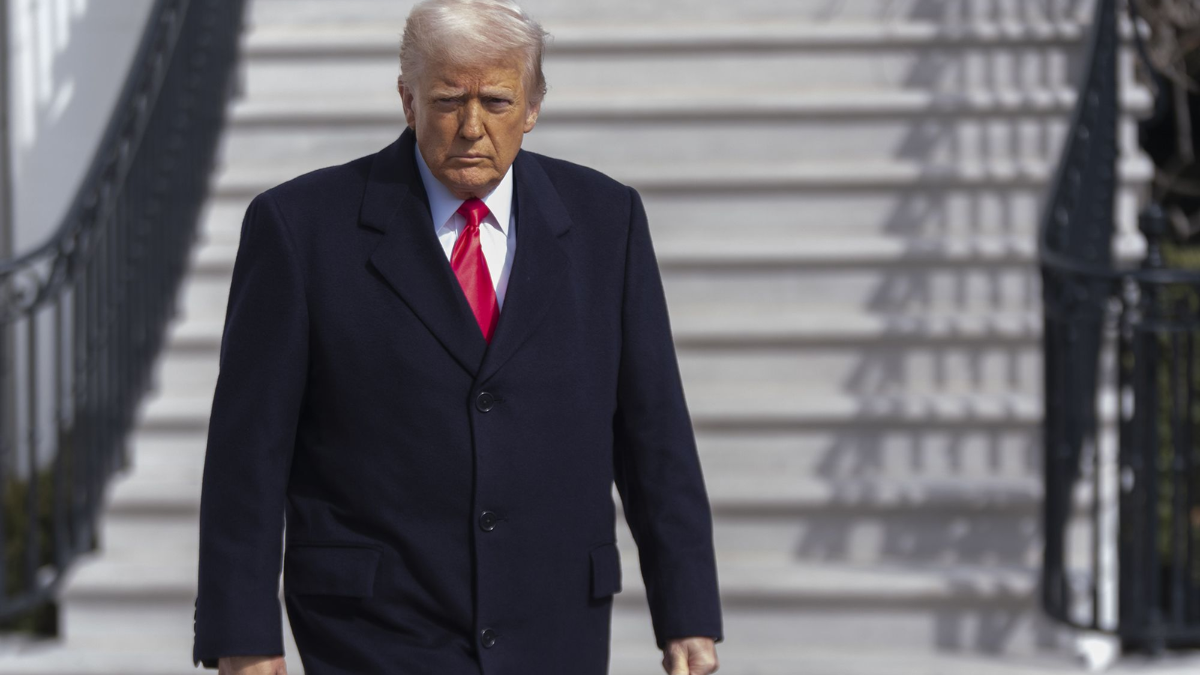As the Republican Party attempts to navigate internal disagreements and mounting fiscal pressure, former President Donald Trump is facing growing criticism from within his own ranks.
A prominent GOP lawmaker recently warned that Trump is “running out of political goodwill,” and his resistance to a key spending bill could potentially sabotage the Republican Party’s efforts to pass critical legislation.
In an era where Trump’s influence has reshaped the Republican agenda, this warning signals a possible shift in dynamics between the party’s legislative wing and its most prominent political figure.
The concern is rooted in Trump’s open opposition to a bipartisan agreement designed to prevent a government shutdown — a deal many Republicans believe is necessary to maintain voter trust ahead of the next election cycle.
Trump’s Opposition Sparks GOP Frustration
The drama began when Trump, once again stepping into legislative matters, called on Republican lawmakers to reject the newly crafted spending bill. The bill was a product of weeks of negotiation and aimed to continue funding the federal government while providing critical resources, including farm aid and defense allocations.
Rather than rallying behind the deal, Trump declared it a “bad deal for America,” citing concerns about the lack of deep spending cuts and demanding more aggressive action against what he calls the “DC Swamp.” As a result, 38 House Republicans voted against the bill — enough to kill it in its current form.
This move stunned some within the party. One GOP lawmaker, speaking anonymously to reporters, accused Trump of undermining efforts to deliver for American constituents, especially rural communities relying on farm subsidies included in the package.
“This was a lifeline to our farmers. He pulled the plug, and now he’s blaming us for the flood,” the lawmaker said.
Internal Tensions Rise: Freedom Caucus vs. Mainstream GOP
The resistance was most pronounced among members of the House Freedom Caucus — a far-right faction with deep allegiance to Trump. Representative Chip Roy of Texas became a central figure in the debate, pushing back hard against raising the debt ceiling without meaningful spending cuts.
Trump’s response was swift: he took to social media to label Roy “unpopular” and suggested he be challenged in the next Republican primary.
Roy didn’t back down. “My job isn’t to please former presidents — it’s to represent the hardworking Texans who sent me to Congress,” he said in an interview. This defiance highlights the growing rift between GOP members who want to legislate with autonomy and those who continue to prioritize loyalty to Trump above all.
The situation mirrors past internal struggles during the Trump administration, where dissenting voices were often met with harsh political retaliation. However, as more lawmakers speak up, Trump’s grip may be slipping, especially among those tasked with the day-to-day work of governing.

Allies Add Fuel to the Fire
Trump’s allies outside of Congress are also weighing in. Elon Musk, who was recently tapped by Trump to lead a commission on government efficiency, stated that a shutdown might be preferable until Trump officially retakes office.
Steve Bannon echoed this sentiment, calling for Speaker Mike Johnson to be removed if he continued supporting the bipartisan deal.
These extreme viewpoints have only deepened concern within the party. A shutdown, many fear, would not only damage public trust but also be politically disastrous for the GOP heading into 2026. The party, already navigating narrow majorities in both chambers, cannot afford to appear disorganized or incapable of governing.
Yet Trump remains defiant, framing the standoff as a loyalty test for lawmakers and a necessary step toward “draining the swamp” — a familiar refrain from his 2016 campaign. While this rhetoric still resonates with many conservative voters, some in the GOP worry it’s becoming more of a liability than an asset.
The Future of GOP Unity
As Trump eyes another term in office, the question remains: can the Republican Party maintain enough internal unity to function effectively? With a fragile majority, growing public dissatisfaction with partisan gridlock, and the ever-present threat of a government shutdown, the GOP faces significant challenges.
The spending bill is now in limbo, and while negotiations are expected to resume, the fallout from Trump’s interference could have long-lasting effects. As one lawmaker put it, “You can’t govern by tweet. At some point, we have to stop campaigning and start delivering.”
Whether Trump listens to those warnings or continues down his current path could determine not only the outcome of this spending bill but also the trajectory of the GOP in the post-Trump era.
For further updates on this developing story, visit The Hill.
Disclaimer – Our team has carefully fact-checked this article to make sure it’s accurate and free from any misinformation. We’re dedicated to keeping our content honest and reliable for our readers.
